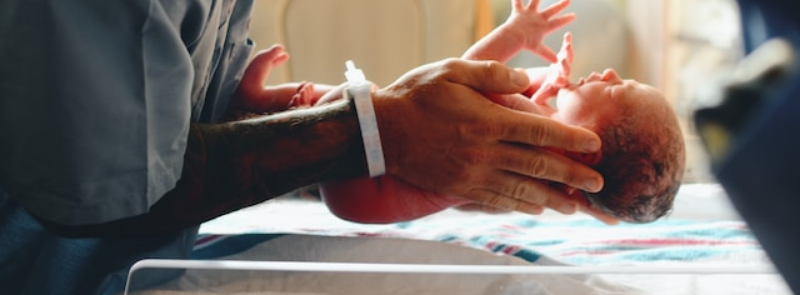
When It Occurs
Every May 23rd
Official Website
Timeline
Days Passed (1006)
# Hashtags
#InternationalDayToEndObstetricFistula #ObstetricFistula
The International Day to End Obstetric Fistula is annually observed on May 23rd. Obstetric fistula is a severe childbirth injury, representing a neglected public health and human rights concern. In low-resource settings, two million women suffer from obstetric fistula, and an additional 100,000 develop it each year. Living in dire conditions due to the leakage of urine and/or feces, only 1 in 50 women affected ever receives treatment.
This day seeks to advocate for access to emergency obstetric care and skilled health professionals, particularly midwives, for all women. The overarching goal is to prevent and ensure treatment for obstetric fistula, addressing the significant challenges faced by those affected.
History and Background
- Establishment: The United Nations General Assembly officially established the International Day to End Obstetric Fistula in 2013, recognizing the need for greater attention to this serious maternal health issue.
- Purpose: The day aims to increase awareness about obstetric fistula, advocate for preventative measures, promote treatment and rehabilitation for affected women, and mobilize resources and support for eliminating this condition.
What is Obstetric Fistula?
Obstetric fistula is a hole between the birth canal and the bladder or rectum caused by prolonged, obstructed labor without timely medical intervention. This condition leads to chronic incontinence, infections, and significant social stigma and isolation for the affected women.
Causes and Consequences
- Causes: Obstetric fistula primarily results from prolonged obstructed labor. Factors contributing to this condition include:
- Lack of access to quality maternal healthcare.
- Child marriage and early pregnancy.
- Malnutrition and lack of proper antenatal care.
- Limited access to emergency obstetric services, including caesarean sections.
- Consequences: The consequences of obstetric fistula are severe and multifaceted:
- Physical Health: Chronic incontinence, infections, and infertility.
- Mental Health: Emotional and psychological trauma, including depression and anxiety.
- Social Impact: Stigmatization, social isolation, and economic marginalization.
Goals of International Day to End Obstetric Fistula
The primary goals of the day are:
- Raise Awareness: Increase global awareness about the causes and consequences of obstetric fistula and the need for comprehensive maternal healthcare.
- Promote Prevention: Advocate for measures to prevent obstetric fistula, including timely access to quality obstetric care, skilled birth attendants, and emergency obstetric services.
- Support Treatment and Rehabilitation: Encourage efforts to provide surgical treatment and rehabilitation services for women living with obstetric fistula.
- Mobilize Resources: Generate resources and support for programs aimed at ending obstetric fistula and supporting affected women.
- Empower Women: Promote gender equality, education, and economic opportunities for women to prevent early marriages and pregnancies.
Celebrations and Activities
International Day to End Obstetric Fistula is marked by various activities organized by governments, non-governmental organizations, healthcare institutions, and advocacy groups. These activities often include:
- Educational Campaigns: Public awareness campaigns, workshops, and seminars to educate communities about obstetric fistula and its prevention.
- Advocacy Efforts: Lobbying for policies and funding to improve maternal healthcare and support programs for fistula prevention and treatment.
- Community Outreach: Outreach programs to identify and support women affected by obstetric fistula, providing them with access to medical care and social support.
- Fundraising Events: Charity events to raise funds for surgical repairs, rehabilitation programs, and initiatives to prevent obstetric fistula.
- Media Campaigns: Using social media, television, radio, and print media to spread awareness and share stories of survivors and the impact of obstetric fistula.
- Medical Camps: Organizing medical camps to provide free or subsidized surgical treatment for women suffering from obstetric fistula.
How to Participate
- Educate Yourself and Others: Learn about obstetric fistula, its causes, and the challenges faced by affected women. Share this information within your community.
- Support Advocacy: Advocate for policies and initiatives that improve maternal healthcare and support efforts to end obstetric fistula.
- Donate: Contribute to organizations working to treat and prevent obstetric fistula and support survivors.
- Volunteer: Offer your time and skills to organizations that work on maternal health and fistula prevention and treatment.
- Raise Awareness: Use social media and other platforms to spread awareness about obstetric fistula and the importance of quality maternal healthcare.
Significance of International Day to End Obstetric Fistula
The International Day to End Obstetric Fistula highlights the urgent need to address one of the most serious injuries that can occur during childbirth. It underscores the importance of comprehensive maternal healthcare and the need for global efforts to eliminate obstetric fistula. By raising awareness, promoting prevention, and supporting treatment, this day aims to ensure that no woman suffers needlessly from this preventable and treatable condition.
The observance of this day also emphasizes the broader goals of gender equality, women's empowerment, and access to quality healthcare, which are essential for achieving sustainable development and improving the lives of women and girls worldwide. Through collective action and increased awareness, International Day to End Obstetric Fistula contributes to the global effort to provide dignity, health, and hope to all women.


